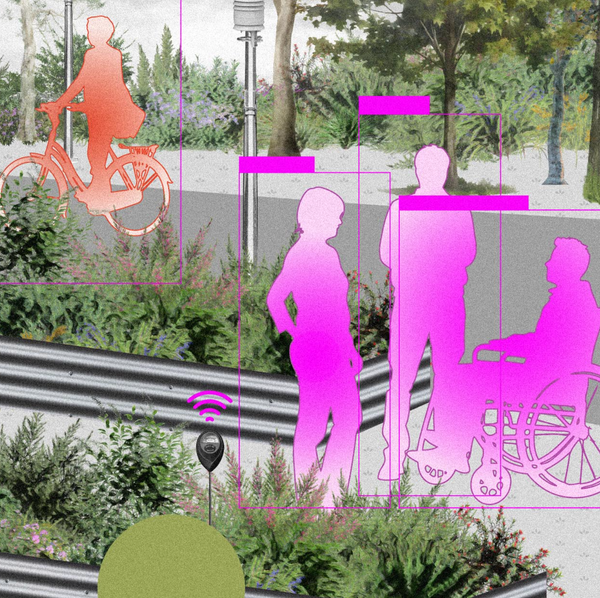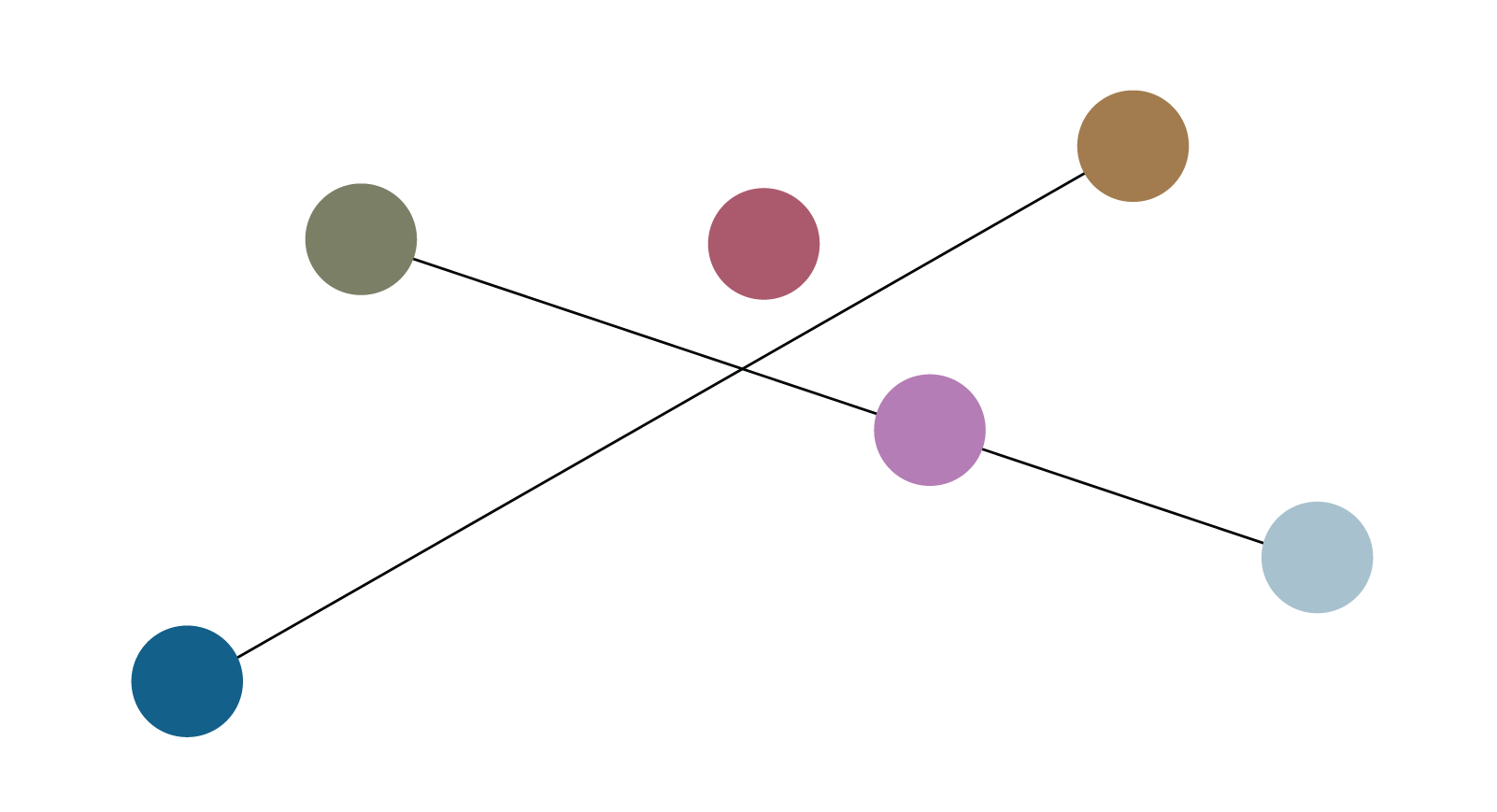
Learning (again) from Ursula LeGuin
The late science fiction writer Ursula LeGuin, in her infinite wisdom, shared a definition of technology that resonates here deeply.
Technology, she said, is the ‘active human interface with the world’. It is, quite simply, all the things we humans - rather technology-obsessed, curious beings - create to connect with each other and to inform our relationship with the world.
Taking this simple idea further, we might describe digital technology as the ways in which we create interfaces through which to know and engage with the world.
The neat thing about these definitions is that they are simply saying: digital technologies express who we are as humans, and necessarily reflect our values, social norms, our politics, the economic structures that shape our lives, and material conditions that sustain, or limit, our flourishing.
This sounds very obvious, but its actually quite different to the way in which much of society discusses what digital technology actually is, and what it promises (or threatens).
Instead, digital technologies - and the innovations that seem to constantly transform how we interact with and learn about the world - are often seen through a lens that sets them apart from who we are now.
This happens when we accord new technologies the power to change lives. The power to make the world a better place. To make workplaces more efficient. To speed up production. To fix wicked problems. To make money.
This idea of digital technology is called ‘technology soluntionism’. It means making technology the solution to problems we can’t be bothered to fix by thinking them through more. It also means adopting the particular version of technology advocated primarily by technologists, who may not actually be the ones equipped to think through the implications of widespread societal adoption.
The problem with this version is that it acquiesces the solutions to many complex challenges to being simply technology solutions, when they may actually be funding problems. Or governance problems. Or education problems.
Or, it blames technology for many societal challenges, the origins of which may lie elsewhere.
The other problem with this version is that it accepts the current status quo, which says its ok for the sum total of human interactions and knowledge - past, present and future - to be transformed into vast digital gold-mines that only certain people, with certain skills, in certain places, can extract wealth from. Because, well, AI.
So can we do better? And if so, how?
We all know what it means to be a good citizen. It means picking up rubbish you see lying on the street. Or helping a mother struggling with her pram to get on the bus. Or electing to help run a BBQ at your local school fundraiser.
Citizenship is also, of course, about showing up to vote in an election - whether compulsorily, if you live in a nation with compulsory voting, or because you believe it’s important to your democracy. Learning about ‘civics’ in school will often involve learning about how government works, how the rule of law works, how democracies function. This might make you yawn, as it did for me.
But there’s a way of thinking about citizenship that often gets left out in favour of the more dull, procedural aspects of politics. Instead of limiting citizenship to something you exercise when you show up to vote, it’s worth taking some time to remember how this idea of ‘civics’ came to be, and actually, how radical an idea it is.
It’s an idea that’s really worth hanging on to - and holding on to - if we want to imagine, and even make, a better world.
What’s the radical thing about ‘civics’?
And isn’t that a bit boring?
Most people became citizens by fighting for it, through bloodshed. Sure, a long time ago, in Ancient Greece, certain men of certain standing were accorded citizenship status. But this was a privilege granted to those with enough money and education. Citizenship only became widespread in contemporary times because many lives, and much blood, was lost.
In a world of powerful empires, nations and corporations, citizenship is the persistent voice that says greed and concentrations of wealth is not enough. Democracy and citizenship go together, because in democracies leaders are elected as representatives of the people, and they exercise power on this basis - not by divine right, or by virtue of how wealthy they are, or how violent they are, or how many thugs work for them.
Throughout history, there have been innumerable violent uprisings provoked because powerful people have chosen to exercise their authority over others by condemning them to lives of hardship and misery: by ruling over them as war lords, as oppressive owners, with little respect for the lives of those weaker or poorer than they are.
Citizenship is so radically different to this ‘state of nature’ because it says if you’re a born or naturalised member of a nation, you have certain rights conferred upon you, which will help you to (hopefully) live a good life. It’s not been a particularly popular way to organise the world for those born with wealth or royal lineage. It was forged through the horrific conditions resulting from human slavery, and the massive concentrations of wealth and privilege achieved by industrialists and royalists who learned to use machines (technologies) and violence to extract huge amounts of wealth from indigenous populations around the world.
So being a citizen is a hard-fought thing. And to paraphrase a beautiful singer, we may not know what its got until its gone.
Unfortunately, many people today learn quite a boring story about civics. Something about the chambers of parliament… how to vote, what to do and not to do. As a result, not many people are very attuned to what a powerful gift it actually is, to be a citizen. To be accorded rights that are upheld by your elected representative, who holds on to power on your behalf, because the majority of people in your community elected them.
Because democracies create citizens, it can seem that citizenship is mostly about voting, and keeping governments accountable. While this is really important, there’s another dimension to citizenship that can get lost here, particularly in representative democracies that require their citizens to show up and vote every couple of years and otherwise not ask too much of them.
In these democracies, it can feel like you’re a citizen a couple of days every few years, and the rest of the time you can go off and be a mum or a dad, a dancer, a school teacher, an entrepreneur, a coder, a marketing assistant, or a social media influencer, or an osteotherapist, a pyschologist, a public servant, a doctor, a nurse, a bike courier, a carpenter, a plumber, or a chef. Once you’ve voted, its time to get on with your life.
If you remember from your civics education at school, the idea with citizenship is that with rights come responsibilities. Responsibilities include obeying laws, paying taxes, and voting. But these are really the minimum. And keeping to the bare minimum is a pretty limited way to exercise citizenship.
This is where we return to that idea about being ‘civic minded’. Being civic minded is when you care about how your community is doing. It’s when you try to make a little bit of difference, not just to make money, but because you’re part of a community and maybe want to feel like you belong.
This is sometimes called ‘active citizenship’, or ‘everyday citizenship’.
For someone like Jon Alexander, the English advertising executive turned citizenship advocate, we badly need a new narrative of what citizenship is and can be in our lives. We’re constantly sold to as consumers, or as data points, or as ‘user profiles’. Or as ‘subjects’ to be ruled over by elected rulers from political parties most people don’t belong to. As a consequence, people feel increasingly powerless to tackle the big challenges that are shaping the very future of life on earth. We feel increasingly powerless to do something meaningful about climate change which threatens to disrupt all of our communities. Or even to say how local taxes should be spent, on a park or a parking station.
When people are reduced to being a consumer, or a subject of the state, they are also, inadvertently, reducing their capacities to act as citizens. Why is this a problem? Because it limits our abilities to solve urgent, collective problems. Power and money get concentrated in the hands of a few, who exercise it in ways that benefit themselves more than solving problems. When there are six billion people on the planet, and the planet is heating badly from too much carbon pollution, and nations around the world struggle to address wealth inequalities, while human settlement patterns provoke mass extinction of much of the world’s wild species and places, we surely know there’s a problem.
As Jon Alexander puts it, a more hopeful story of being a citizen is needed. People need to know that their actions actually matter.
As citizens, we look around, identify the domains where we have some influence, find our collaborators, and engage. And, critically, our institutions encourage us to do so.
This is the version of citizenship we need to turn to when we’re feeling anxious about how today’s technologies, including not least artificial intelligence, are influencing our lives.
It's the version we need to reimagine how our active interface with the world could be different.
